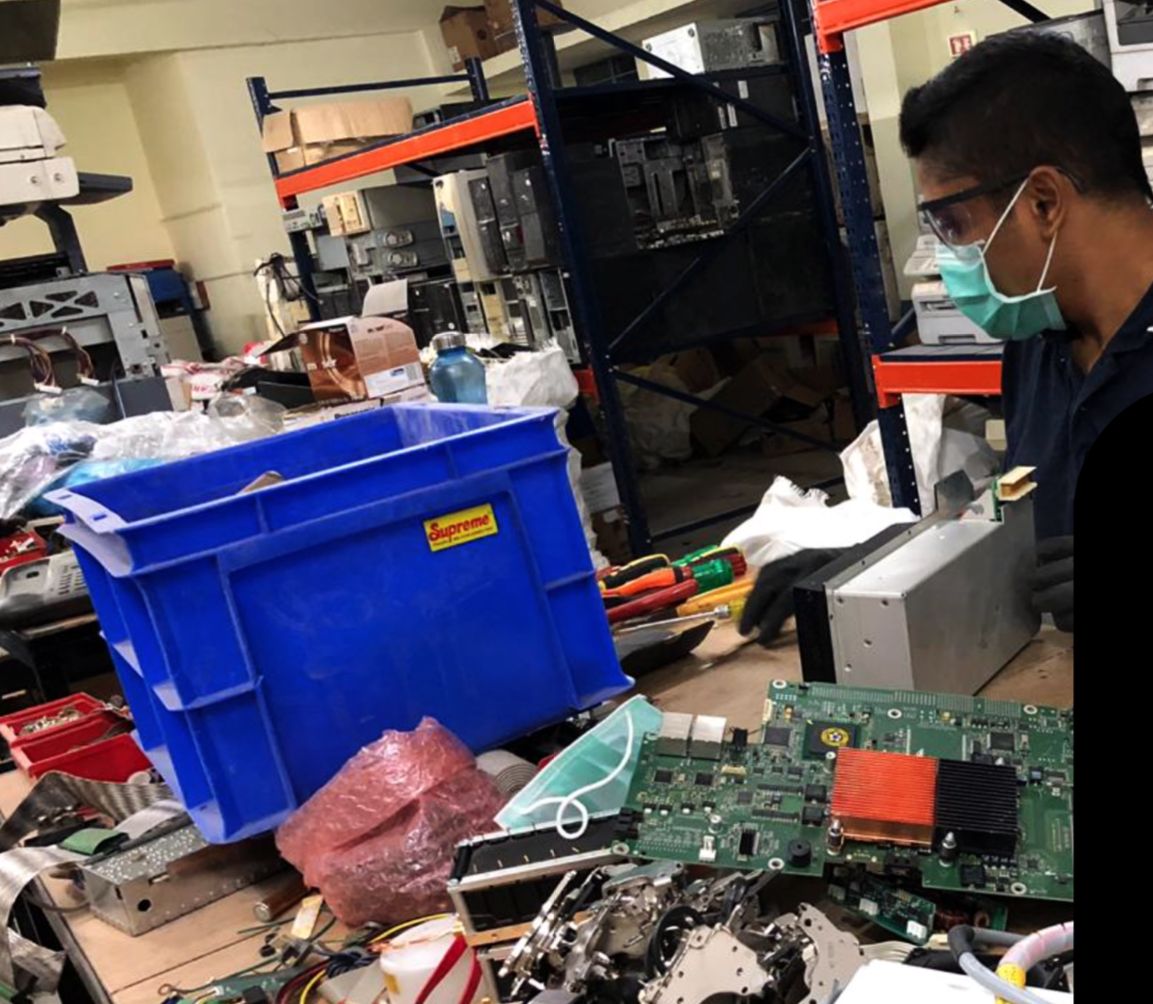In our fast-paced world, electronic devices have become a part of everyday life. However, as time goes by, many of these devices are broken, no longer useful, outdated or stop working, tuning into electronic waste, or e-waste. E-waste includes old computers, televisions, mobile phones, toys, plugs, cords, home appliances, and many other e-components.
With our growing dependence on technology, the amount of e-waste is increasing at an alarming rate. This rapid rise in e-waste is creating serious environmental and health challenges, making it more important than ever to recycle our electronics responsibly.
The Growing Problem of E-Waste
According to a report by ITU and UNITAR, a whopping 62 million tons of e-waste was produced in 2022 globally. This is an increase of 82% from 2010. The UN’s fourth Global E-waste Monitor also predicted that there will be a five-fold increase in e-waste to reach 82 million tonnes by 2030. Further, the report mentions that if we fail to increase the recycling rate from 22.3% in 2022 to 60% by 2030, the risks caused by e-waste will become inevitably non-reversible.
Due to the growth of e-waste generation, there are a few distress that mankind and our environment face. Toxic materials from e-waste, like lead and chromium, can contaminate water, soil, and air, harming wildlife and contributing to pollution. When e-waste ends up in landfills, these chemicals seep into groundwater or are released into the air, posing serious health risks, especially children are more vulnerable to these toxins.
Recycling Electronic Waste

E-waste recycling is a process of reusing, refurbishing, or responsibly disposing of expired electronic devices. There are a few companies handling electronics recycling in Calgary and India. They are Attero, E-Parisaraa Pvt Ltd, Karma Recycling, Cosmos Recycling, Ecoverva E-Waste Recycler, Green IT Recycling Centre Pvt. Ltd and many more. They collect, extract valuable materials and safely handle hazardous components.
While these companies are doing great, it is every individual’s responsibility to contribute to this rising issue by following the 3R’s mantra.
3R Mantra: Reduce, Return, and Recycle
- Reduce unnecessary purchases, avoiding gadgets as status symbols.
- Return old devices to manufacturers like Nokia, Apple, or Dell for proper recycling.
- Recycle scrap by sending it to reprocessing centers, conserving natural resources like trees, oil, and gas.
Common Mistakes and How to Avoid Them
It is crucial to follow a proper process while recycling e-waste. There are a few common mistakes to avoid while doing and those are as follows:
1: Throwing Away E-Waste in the Trash
Many people mistakenly toss old electronics in the regular trash thinking it’s harmless. But, it can harm the environment due to the numerous hazardous chemicals present in it.
How to avoid: Always take the e-waste to the collecting point or recycling facility. These places will be well-equipped to process e-waste. This will ensure that they don’t end up in landfills.
2: Not Erasing Personal Data
Improper disposal of electronic equipment can lead to sensitive data loss, identity theft, and consumer scams. Before disposal, hard drives have to be thoroughly checked and cleared of any personal information that cyber criminals could exploit.
How to avoid: Before disposing of or recycling electronic devices, thoroughly delete all personal data. Use any software for data erasing or take it to a professional to ensure your information is completely removed from hard devices, smartphones, and other storage devices.
3: Storing E-Waste

Saving outdated or broken electronics or electrical devices can take up space and contribute to unnecessary clutter at your home or office. How to avoid: If you haven’t used an electronic device for over a year, it’s time to consider recycling or donating it. Regularly assess your electronics and dispose of or donate those that are no longer needed to keep your space organized and avoid accumulation.
4: Being Uninformed about Recycling Centers
Not knowing where to find reliable electronic waste recycling centers can result in improper disposal or missed opportunities for responsible recycling.
How to avoid: Research and identify certified e-waste recycling centers in your area. Many communities offer resources online or through local government offices to help you find the right places to drop off your electronic waste.
5: Disassembling Electronics Yourself
Making attempts to disassemble electronics yourself at home can cause much harm to you. From getting your fingers cut to exposing yourself to harsh chemicals, it is a mistake that needs to be avoided.
How to avoid: Leave the disassembling to professionals. They have appropriate tools and are trained to perform the dismantling while following safety measures. This prevents injury and exposure to toxic materials. This also ensures that all components are recycled correctly.
6: Ignoring Manufacturer Take-Back Programs
Few manufacturers have their own take-back or recycling programs. Not knowing about these programs and searching for other options can end up missing out on a convenient and responsible recycling option.
How to avoid: Check the recycling programs offered by the manufacturers. Since they know the devices they manufacture better than others. You can trust them to handle recycling responsibly.
7: Not Knowing Your Compliance
Disposing of electronic devices without understanding state or federal regulations can lead to fines and legal issues.
How to avoid: Familiarize yourself with the regulations regarding e-waste disposal in your area. If you handle sensitive information like medical or customer records, ensure you comply with specific legal requirements for data protection and asset disposal. Research local and federal guidelines to avoid potential legal consequences.
Wrap-Up
It is important to be well-informed on properly recycle electronic waste to protect our health and environment. Avoiding the common mistakes mentioned and following a responsible procedure will contribute to a safe future for all of us.
Source link
ecoideaz www.ecoideaz.com

